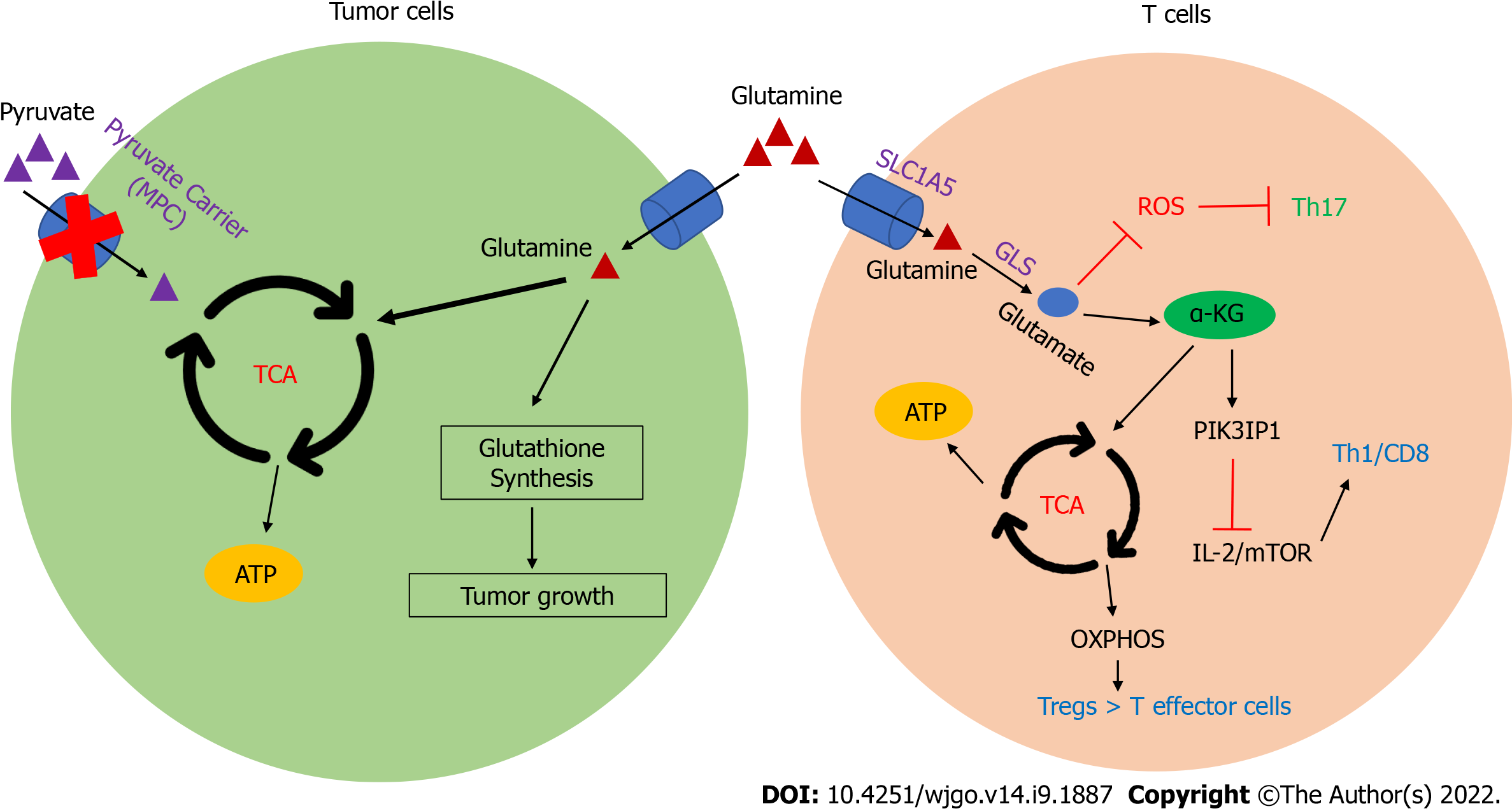Copyright
©The Author(s) 2022.
World J Gastrointest Oncol. Sep 15, 2022; 14(9): 1887-1891
Published online Sep 15, 2022. doi: 10.4251/wjgo.v14.i9.1887
Published online Sep 15, 2022. doi: 10.4251/wjgo.v14.i9.1887
Figure 1 Glutamine metabolism impacts T cell differentiation and tumor growth.
Glutamine metabolism can be transferred into cells by solute carriers, such as Solute carrier family 1 member 5 (also known as alanine-serine-cysteine transporter 2). It can be metabolized into glutamate through glutaminolysis (GLS) to impact T helper 17 (Th17) cells, Th1, and CD8 T cell differentiation by regulating the production of reactive oxygen species and expression of phosphoinositide-3-Kinase Interacting Protein 1, respectively. Increasing GLS leads to a proinflammatory effector phenotype, while restriction of GLS causes a slanted Treg differentiation by inhibiting oxidative phosphorylation. In addition, hepatocyte mitochondrial pyruvate carrier disruption redirects glutamine from glutathione synthesis into the tricarboxylic acid cycle, which impaired hepatocellular carcinoma by limiting glutathione synthesis. MPC: Mitochondrial pyruvate carrier; TCA: Tricarboxylic acid; SLC1A5: Solute carrier family 1 member 5; GLS: Glutaminolysis; OXPHOS: Oxidative phosphorylation; TOR: Target of Rapamycin; Th1: T helper 1; PIK3IP1: Phosphoinositide-3-Kinase Interacting Protein 1; ROS: Reactive oxygen species.
- Citation: Zhang CY, Liu S, Yang M. Nutrition deprivation affects the cytotoxic effect of CD8 T cells in hepatocellular carcinoma. World J Gastrointest Oncol 2022; 14(9): 1887-1891
- URL: https://www.wjgnet.com/1948-5204/full/v14/i9/1887.htm
- DOI: https://dx.doi.org/10.4251/wjgo.v14.i9.1887









